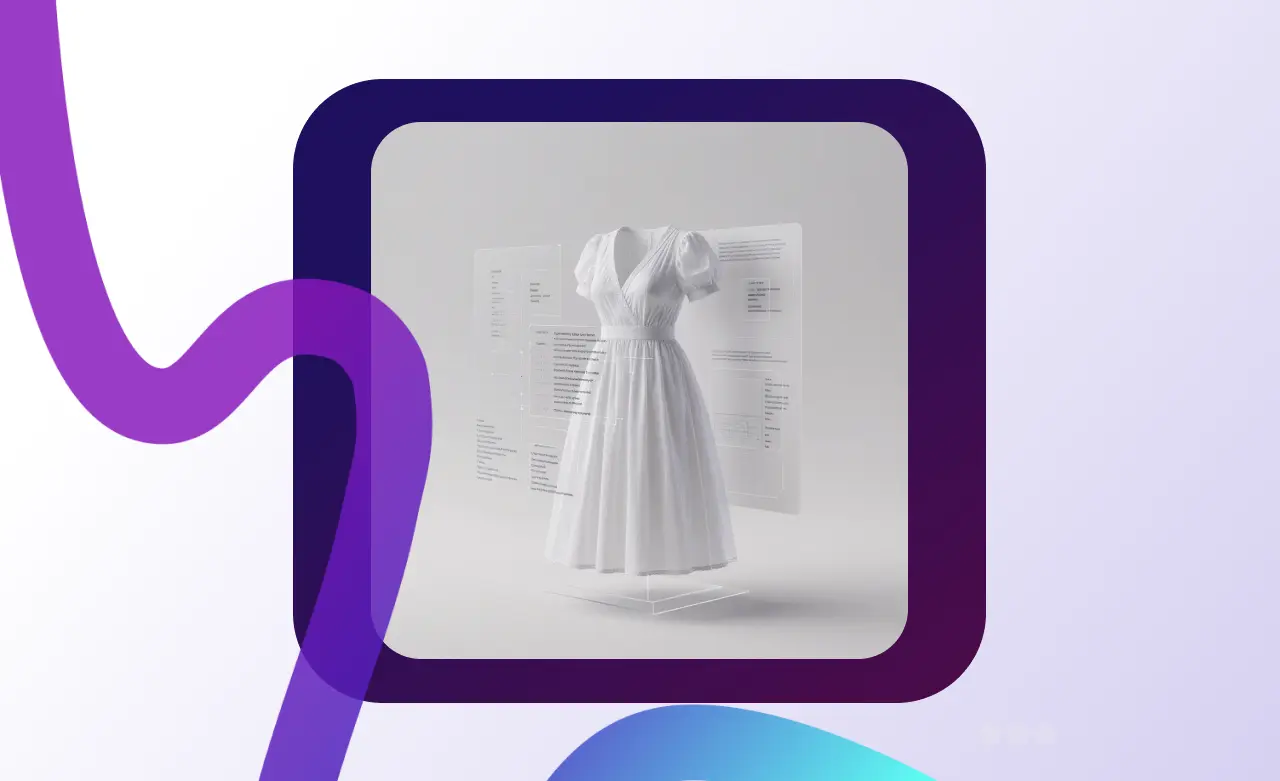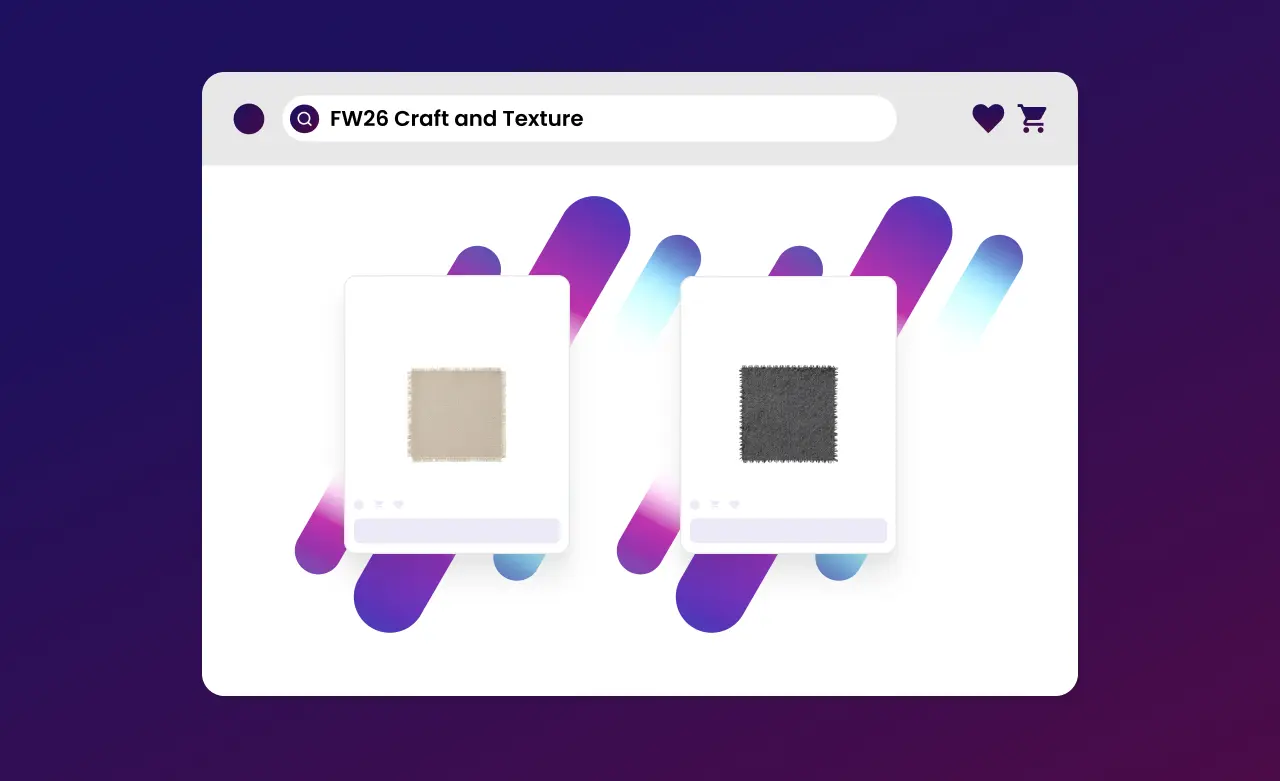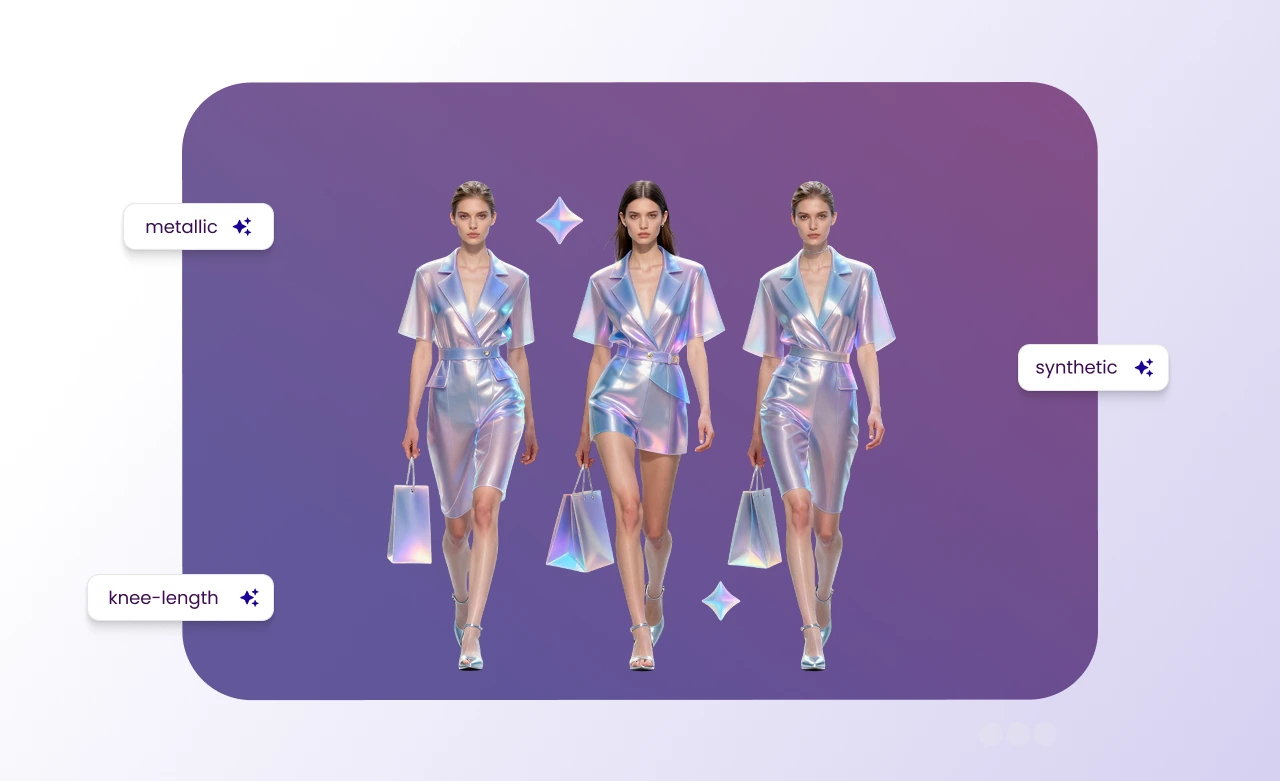Decode the Dress: Why Smart Dress Taxonomy Is Fashion’s Secret Power Move

You know that moment, you’re five scrolls deep, searching for the perfect "summer floral dress"... and suddenly the internet’s throwing satin slip dresses, paisley tunics, and polka-dot partywear at you like it's fashion bingo. Not helpful.
But here's the good news: your online shopping chaos isn’t a user problem. It’s a metadata problem.
In a world where 88% of shoppers bounce due to poor UX and 3x more conversions come from smart product discovery, it's clear: structured fashion taxonomy is IT.
That’s where Pixyle AI comes in, automating the messy, manual tagging process with the kind of precision your catalog deserves.
In this ultimate guide, we’re breaking down every dress type in one taxonomy that actually makes sense (and maybe even sparks joy). Whether you're a retailer, a merchandiser, or just a fashion nerd who loves a well-tagged kaftan, this one's for you.
Let’s stitch some structure into your style.
Why Dress Type Taxonomy Matters More Than You Think
Dresses are context chameleons. A dress isn't bought just because it's cute (though that helps). It’s chosen because it fits the moment.
Summer wedding? You're looking for a light, flattering wrap dress.
Music festival? A flowy tunic or bold kaftan is calling.
Winter office party? Time to slip into a luxe sweater dress or structured blazer dress.
Saturday brunch? That shirt dress is about to put in work.
Each event, season, and trend brings a shift in what shoppers want. If your catalog can’t clearly identify those needs, you’re letting potential customers click away, fast.
That’s why dress type taxonomy is the connective tissue between your inventory and a shopper’s intent.
Let’s Break It Down: The Dress Type Family Tree
These are the core dress types that should form the foundation of your taxonomy. When tagged right, they help shoppers discover the exact piece they had in mind (even if they didn’t know what it was called).
Pinafore Dress
Sleeveless with cross-straps, often layered over shirts. Great for back-to-school vibes or casual days.
- Tag: casual, denim, summer
Jumper Dress
Think cozy, knit, and ready for layering. A winter wardrobe hero.
- Tag: knit, layering, versatile
Wrap Dress
The universally flattering MVP. Perfect for weddings, date nights, or office glam.
- Tag: flattering, wrap, wedding guest
Blazer Dress
Blending boardroom and bar. This one’s for bold power moves and chic evening looks.
- Tag: business chic, formal
Slip Dress
Minimalist, silky, and endlessly versatile. Dress it up or down: weddings, cocktail parties, or fashion week street style.
- Tag: cocktail, minimalist, evening
Party Dress
If it sparkles or turns heads, it’s here. The go-to for birthdays, NYE, or anywhere there’s a dance floor.
- Tag: dressy, fun, party
Shirt Dress
Buttoned up but laid-back. A day-to-night staple, especially for summer or transitional seasons.
- Tag: casual, breathable, cotton
Tunic
Flowy, breathable, and easy to wear. Ideal for festivals, travel, or a polished casual outfit.
- Tag: leggings-friendly, everyday, versatile
Kaftan / Kimono
Loose silhouettes with global roots. Beach days, boho weddings, or lounging in luxury.
- Tag: ethnic, beachwear, flowy
Sweater Dress
Chunky knits meet one-and-done style. Fall and winter MVP.
- Tag: winter, knit, lounge
Bodycon
Fitted and confidence-boosting. Great for night-outs, parties, and anyone channeling main character energy.
- Tag: fitted, night-out
Sportswear Dress
Athleisure’s dress code. Comfortable, stretchy, and often underestimated.
- Tag: active, sporty, casual
Discover Pixyle Ultimate Dress type Taxonomy Guide
Learn how to structure your catalog in a way that matches how people actually shop.


Dress Types Are Seasonal, Emotional, and Highly Contextual
Here’s the thing: Shoppers rarely think in terms of SKUs. They think like this:
“I need something for a spring wedding.”
“I want a cute dress for a music festival.”
“I need to look professional and stylish at this event.”
And trends? They move fast. A slip dress might spike in search every spring-summer. A sweater dress? Bring on fall. Bodycon sees its moment every December. Your taxonomy has to keep up, or you risk serving the wrong styles to the right people.
Proper tagging helps retailers surface the right dresses for the right moments. It also helps merchandisers forecast demand, plan campaigns, and turn browsers into buyers.
Taxonomy Is Trend Translation
Think of dress taxonomy like a skilled stylist-meets-personal shopper, working behind the scenes. It deciphers why someone’s searching for a “boho maxi dress” in May (Coachella, anyone?) or a “velvet bodycon” in December (cue the holiday parties). By mapping styles to seasons, moods, and milestones, graduations, weddings, music festivals you’re aligning it with real-life demand. When taxonomy speaks the shopper’s language, your site becomes less of a scroll-fest and more of a "yes, add to cart" moment.
From Closet Chaos to Click Confidence
No one has time to dig through digital racks of random dresses. Shoppers want their dream dress now; whether it’s for a rooftop brunch, a last-minute destination wedding, or Tuesday (because vibes matter). When your catalog is built on smart dress taxonomy, it thinks like a shopper. Every tag, every category, every filter becomes a fast-track to relevance. Suddenly, your site isn’t just a store. It’s a stylist, a trend forecaster, and a personal assistant rolled into one.
How Pixyle.ai Supercharges Your Product Discovery
Pixyle.ai uses visual AI to auto-tag every element of a dress, so you don’t have to.
What You Get:
✅ AI-Powered Attribute Tagging
✅ Auto-Generated Titles & Descriptions
✅ Metadata that matches real shopper queries
✅ Better filters. Better search. Better SEO.
From “blue dress” to “blue satin slip dress for cocktail parties”, automatically.
Why This Matters for Retailers
- 88% of shoppers won’t return to sites with bad UX
- 2.5x better search performance with smart tagging
- 3x higher conversions when product discovery works
Final Stitch
If your product catalog still looks like it’s running on dial-up, you’re not ready for runway season.
Smart taxonomy isn’t just a backend fix, it’s your frontline fashion advantage. With Pixyle.ai, your catalog becomes cleaner, clearer, and conversion-ready.
Start tagging smarter and turn cluttered data into click-worthy content.
Boost your sales with AI product tagging
Optimize your eCommerce catalog to improve discovery and conversions.






